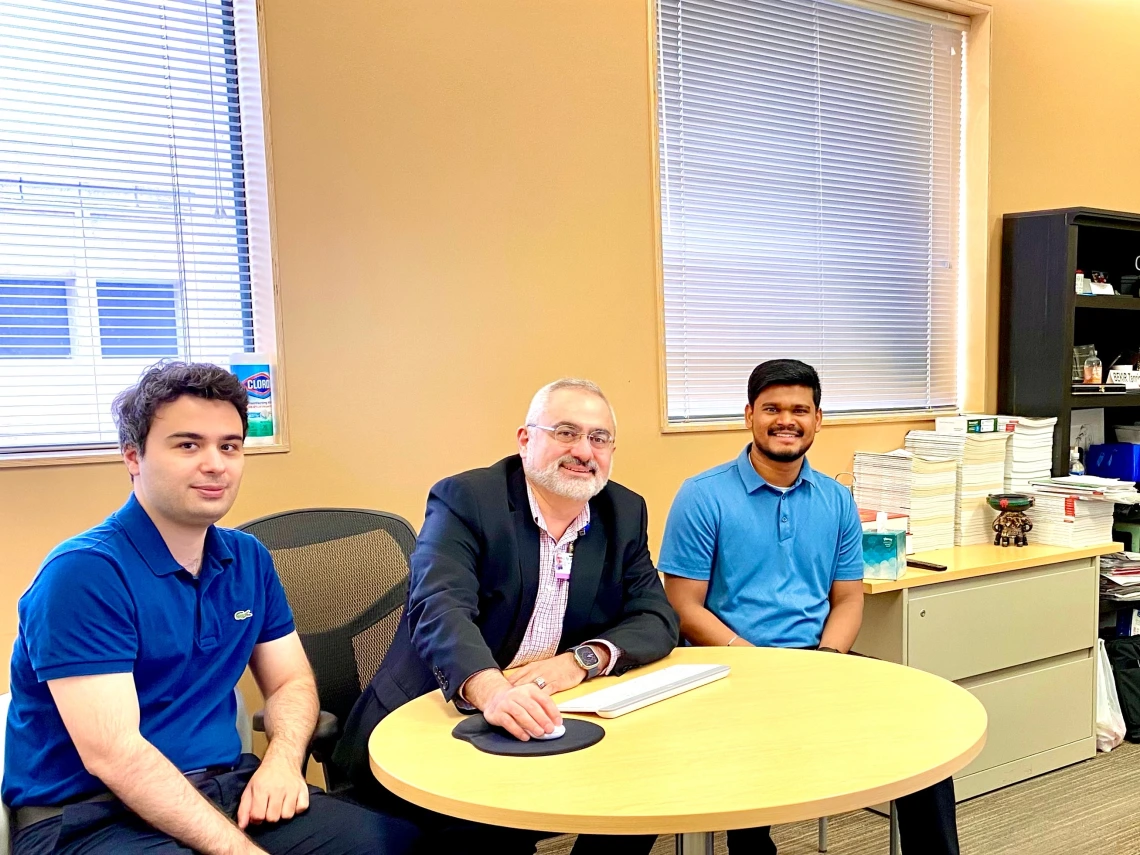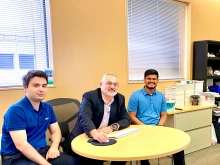Secure analysis enclave enables advanced tools and data sets to improve kidney care


Vikas Pal from the University of Arizona College of Medicine–Tucson’s Nephrology division brings a background in business analytics and years of experience in data science and AI to the field of kidney research. As a Scientific Analyst II, he focuses on end-stage kidney disease (ESRD) and transplant care, driven by the belief that data holds answers to questions that can impact thousands of lives.
Pal explores national kidney large datasets, such as USRDS and UNOS, to understand how cardiovascular diseases before and after kidney transplant affect survival and what various kidney transplants cost the healthcare system. His research centers on improving outcomes and making better use of available organs by better organ quality assessment and appropriate recipient matching. “I’m excited to be part of a future where data doesn’t just sit in charts — it actively guides, predicts, and transforms kidney care,” said Pal. Under the mentorship of Dr. Bekir Tanriover, Chief of the Division of Nephrology, Pal combines clinical insight with analytics to build smarter approaches to care.
To support his work, Pal works with the Data Science Institute and uses Soteria, a secure cloud platform built for high-performance computing and sensitive health data. Soteria allows him to run complex models, analyze patient data at scale, and stay compliant with HIPAA. With high RAM and GPU support, the platform ensures fast, scalable analysis.
Experts like Sara Willis, Ryan Duitman, Nirav Merchant, Enrique Noriega, and Rudy Salcido helped Pal and his team create secure, efficient workflows for handling Protected Health Information (PHI). Pal also works with collaborators like Ahmet Gungor to address complex research challenges. He uses machine learning to analyze lab reports, CT images, and transplant records, all while following strict ethical and security standards.
His projects include evaluating long-term transplant outcomes and studying the economics of kidney care. These insights help guide clinical decisions and support better resource use. He also sees potential in privacy-preserving methods like federated learning and tools that simplify combining structured and unstructured data for analysis.
From prediction models to automated lab data extraction, Vikas Pal is turning complex information into knowledge that can improve kidney care across the board.

